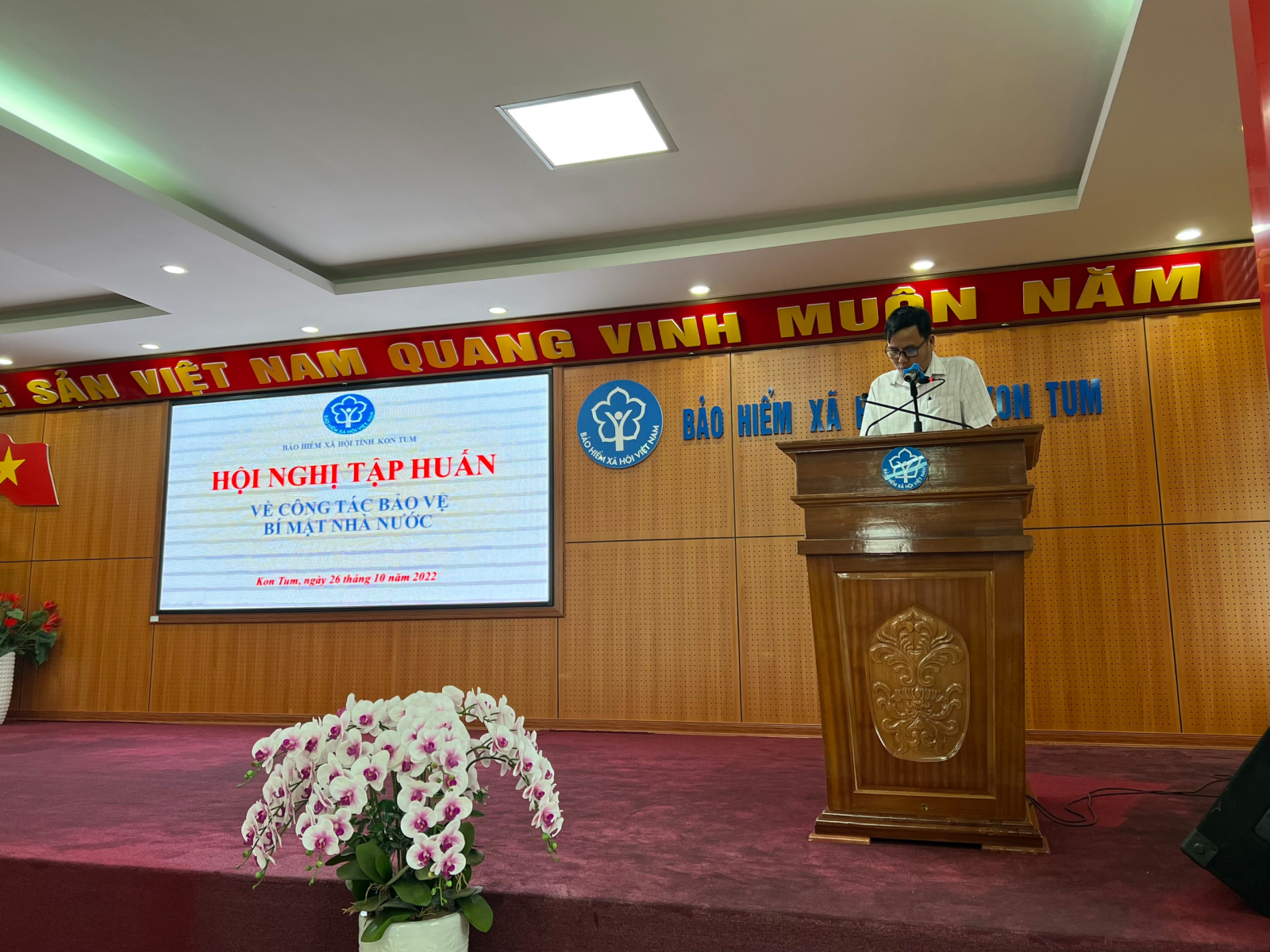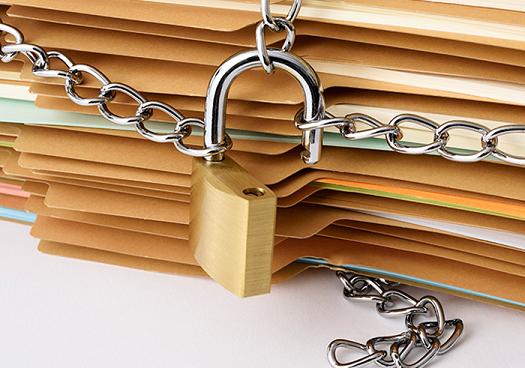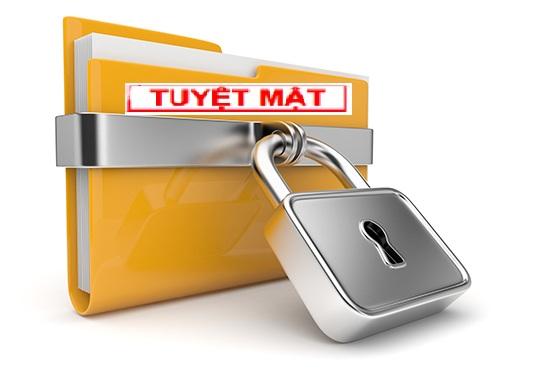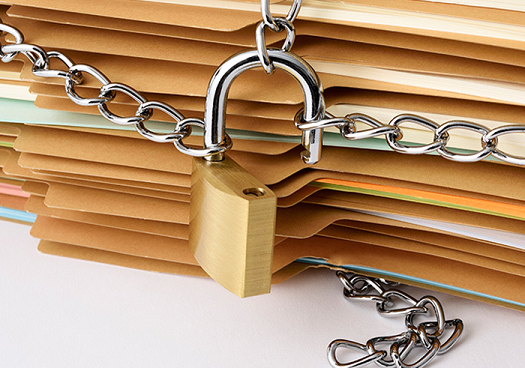Principles for protecting state secrets in the Vietnam Social Insurance sector
What are the principles for protecting state secrets in the Vietnam Social Insurance sector? - Nhat Hoang (Binh Dinh)

Principles for protecting state secrets in the Vietnam Social Insurance sector (Internet image)
Regarding this issue, LawNet would like to answer as follows:
1. Principles for protecting state secrets in the Vietnam Social Insurance sector
- The work of protecting state secrets of the Vietnam Social Insurance sector is carried out in accordance with the principles of protecting state secrets stipulated in Article 3 of the Law on Protection of State Secrets and relevant regulations, and according to the contents specified in the Regulations issued together with Decision 1769/QD-BHXH in 2023.
- The drafting, promulgation and management of documents and documents containing state secrets are carried out in accordance with current laws on the protection of state secrets, regulations on the clerical work of the Vietnam Social Insurance sector, and other related regulations.
- Equipment related to drafting, storing, and printing documents listed as state secrets must ensure the following principles:
+ For equipment self-equipped by social insurance agencies at all levels, before being put into use, it must be inspected and evaluated by competent authorities for network security, information security, etc.
+ For equipment issued by the Government Cipher Committee and equipment specified in Point a, Clause 3, Article 3 of the Regulations issued with Decision 1769/QD-BHXH in 2023, when using, do not connect to the internet, computer network, or telecommunications network, except in cases in accordance with the provisions of the law on ciphers.
2. Prohibited acts in protecting state secrets in the Vietnam Social Insurance sector
- Revealing, appropriating, buying, and selling state secrets; falsifying, damaging, or losing documents or objects containing state secrets.
- Illegally collecting, exchanging, providing, or transferring state secrets; copying, photographing, storing, transporting, delivering, receiving, recovering, and destroying documents and objects containing state secrets against the law.
- Removing documents and objects containing state secrets from illegal storage places.
- Taking advantage of, abusing the protection of state secrets, and using state secrets to commit or conceal acts that violate the law, infringe upon legitimate rights and interests, or obstruct the activities of agencies, organizations, or individuals.
- Drafting and storing documents containing state secrets on computers or other devices connected or currently connected to the Internet, computer network, or telecommunications network, except in the case of storing state secrets according to the provisions of the law on ciphers.
- Transmitting state secrets on information and telecommunications media contrary to the provisions of the law on ciphers. Posting and distributing state secrets on mass media, the Internet, computer networks, and telecommunications networks.
- Change the purpose of using computers and other equipment used to prepare, store, and exchange state secrets without eliminating state secrets.
- Using equipment with the function of receiving, transmitting signals, or recording audio or video in conferences, seminars, or meetings with state-secret content in any form without permission from a competent person.
3. Regulations on determining state secrets and the confidentiality of state secrets in the Vietnam Social Insurance sector
- General Director, Head of Unit under Vietnam Social Insurance, Director of Provincial Social Insurance, and the Director of District Social Security (or authorized Deputy) (collectively referred to as the competent person) are responsible for determining state secrets and the level of confidentiality of state secrets.
- Authorization to determine state secrets and the confidentiality of state secrets is carried out regularly or on a case-by-case basis and must be expressed in writing, which clearly defines the scope, content, and duration of authorization.
- Authorized deputies must be responsible before the leader and the law and must not further delegate authority to others.
- In the event that information in the same document or container containing state secrets belongs to the list of state secrets with different levels of confidentiality, the highest level of confidentiality shall be determined.
- In case of using the state secrets of another agency or organization, the corresponding level of confidentiality must be determined.
- In the event that a document is repetitive in nature and has the same confidentiality level, the person with authority to issue the document shall determine the confidentiality level once for that type of document.
- Cases of signing under orders, under authorization, or signing on behalf must be at the request of the competent person or have a written proposal and the consent of the competent person to decide on state secrets.
and the confidentiality of state secrets.
- Persons receiving information on the list of state secrets but not yet determined to be state secrets must report it to the head of the agency or unit and transfer it to the unit with the handling function. The person assigned to handle the process must have a written request to the head of the agency or unit to determine the state secret, the confidentiality of the state secret, the recipient, the number of copies, and whether or not it is allowed to copy or photograph documents or objects containing state secrets. Received information must be protected during reception and processing.
- Forms of signs indicating the level of confidentiality and sample documents determining the level of confidentiality of state secrets comply with the provisions of Circular 24/2020/TT-BCA.
Legal basis: Articles 3, 4, and 5 of the Regulations issued together with Decision 1769/QD-BHXH in 2023
Ho Quoc Tuan
- Key word:
- state secrets
- Vietnam Social Insurance
- Number of deputy directors of departments in Vietnam in accordance with Decree 45/2025/ND-CP
- Cases ineligible for pardon in Vietnam in 2025
- Decree 50/2025 amending Decree 151/2017 on the management of public assets in Vietnam
- Circular 07/2025 amending Circular 02/2022 on the Law on Environmental Protection in Vietnam
- Adjustment to the organizational structure of the Ministry of Health of Vietnam: Certain agencies are no longer listed in the organizational structure
- Vietnam aims to welcome 22-23 million international tourists in Vietnam in 2025
-

- Cases of removal from the List of science and ...
- 17:30, 22/11/2024
-

- Regulations on determining state secrets of trade ...
- 08:30, 10/10/2024
-

- Determination of state secrets and their confidentiality ...
- 15:46, 09/10/2024
-

- Issuance of the Regulations on the Protection ...
- 17:35, 08/10/2024
-

- Vietnam: List of state secrets classified as Top ...
- 15:41, 10/07/2024
-

- Notable new policies of Vietnam effective as of ...
- 16:26, 11/04/2025
-
.Medium.png)
- Notable documents of Vietnam in the previous week ...
- 16:21, 11/04/2025
-
.Medium.png)
- Notable documents of Vietnam in the previous week ...
- 16:11, 02/04/2025
-
.Medium.png)
- Notable new policies of Vietnam to be effective ...
- 16:04, 02/04/2025
-
.Medium.png)
- Notable new policies of Vietnam effective from ...
- 14:51, 21/03/2025
 Article table of contents
Article table of contents
